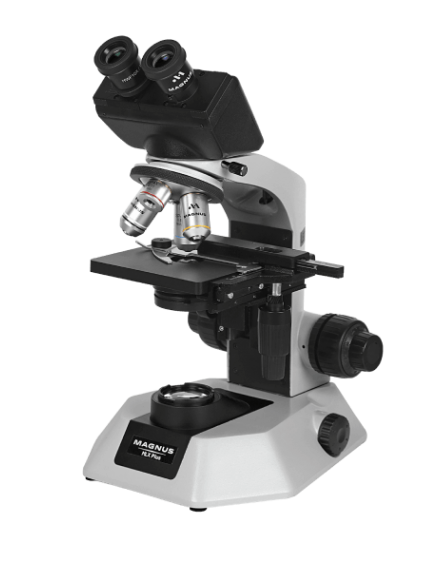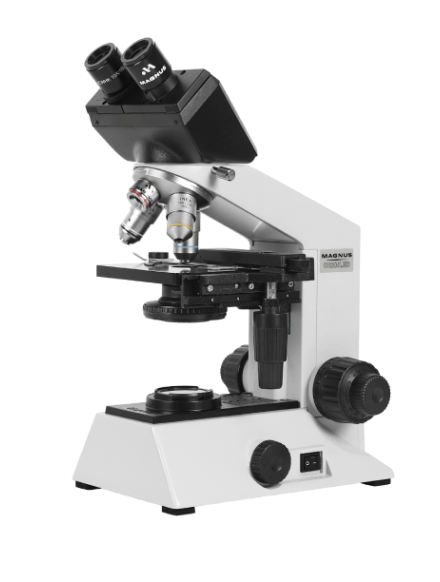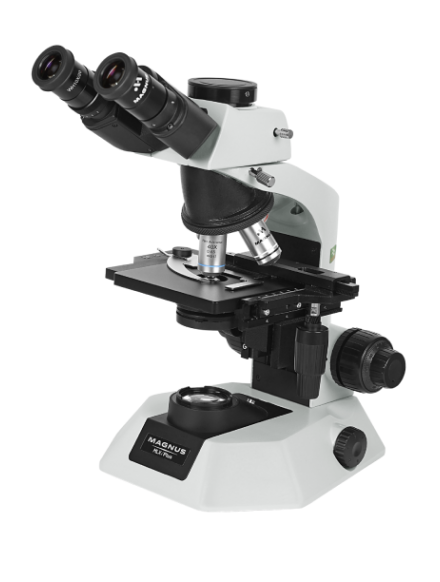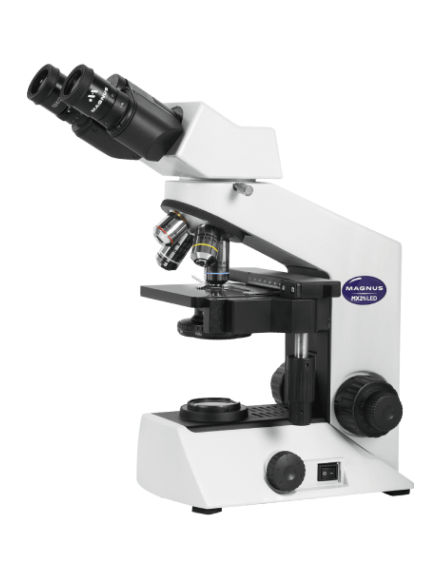High-Precision Compound Microscopes for Education, Research & Clinical
Use
Microscopy plays a pivotal role in how we explore, analyze, and understand the
microscopic world. Whether in a biology classroom, a pathology lab, or a research institute, the demand for
clear, detailed, and reliable optical imaging is non-negotiable. At Magnus Opto Systems, we are proud to
offer a curated range of compound microscopes engineered for accuracy, ease of use, and durability.
These microscopes are not only a cornerstone of modern science and medicine but
also essential tools in education and industrial quality control. Our compound microscopes are designed to
empower professionals and students alike with clear magnification and enhanced visual precision, enabling
them to study biological specimens in fine detail. With decades of experience in optical technology, we
combine traditional optical expertise with ergonomic design and modern illumination to bring you instruments
that perform exceptionally across disciplines.
Understanding Compound Microscopes
A compound microscope is an optical device that uses a series of lenses—most
notably, an objective lens and an eyepiece lens—to magnify small specimens with exceptional clarity. These
microscopes are typically used to view thin, transparent samples like tissue slices, microorganisms, and
cellular structures at magnifications ranging from 40x to 1000x or more.
This type of microscope is widely used in:
- Schools and colleges for science education
- Hospitals and diagnostics centers for analyzing blood, cells, and
tissues
- Research laboratories for life sciences, microbiology, and genetics
- Pharmaceutical and chemical industries for testing and development
- Agricultural and veterinary fields for plant and animal cell
studies
Compound microscopes provide high-resolution, two-dimensional views of samples
illuminated from below, and are ideal for observing slides prepared with biological specimens.
Explore Our Compound Microscope Models
At Magnus, we offer several models to meet various levels of expertise and
applications:
- CH20i– A robust and reliable entry-level
microscope, ideal for classroom use and beginner lab work.
- Theia-i– Designed for clinical labs, this model
offers enhanced optics and superior illumination for long working hours.
- Theia-fi– With ergonomic features and precise
focusing, this model is suited for professionals conducting detailed biological analysis.
- MX21i– Preferred in pathology labs and advanced
research setups for its optical performance and mechanical stability.
- MX21i TR Pro Freedom– A high-end trinocular model
that allows camera integration, perfect for documentation and live image sharing.
Each model comes equipped with high-quality objective lenses, adjustable LED
illumination, and fine-focus mechanisms to ensure accurate, fatigue-free operation—even during extended
sessions.
Designed for Real-World Performance
What sets Magnus compound microscopes apart is our attention to what
professionals and educators truly need. Our microscopes are known for:
- Precision opticsthat deliver sharp,
distortion-free imaging
- Durabilityto withstand daily use in high-traffic
lab environments
- LED lightingfor long-lasting, even illumination
- Ergonomic buildto reduce user fatigue during
prolonged observation
- Affordable configurationswithout compromising
quality
We understand that every use case is different. That’s why our product range
includes models tailored to both general education and high-end laboratory diagnostics.
Expand Your Lab with Compatible Solutions
Modern labs often require more than one type of microscope to address different
applications. At Magnus, we provide a full suite of complementary options to support a complete microscopy
setup.
For instance, if your work involves observing live cell cultures or samples that
require inverted viewing, you may consider inverted
microscopes, which are designed to view specimens from below—a necessity for many cell biology
labs.
For surface-level inspections or working with solid specimens in 3D, our stereo microscopes
offer low magnification with a three-dimensional perspective, commonly used in forensic analysis and
electronics inspection.
In teaching environments where engagement and group demonstrations are key, our
teaching microscopes
provide flexibility and shared viewing capabilities.
And for labs that require real-time imaging and documentation, digital microscopes
offer built-in cameras and connectivity for seamless image capture and analysis.
All of these solutions are designed to integrate smoothly with your lab's
existing workflow and support your team’s diverse microscopy needs.
How to Choose the Right Compound Microscope
Selecting the right microscope depends on the nature of your work and the level
of precision required. Here are a few key considerations:
- Magnification Range: Ensure the microscope
supports your required viewing levels—standard compound microscopes typically go from 40x to 1000x.
- Optical Quality: Look for achromatic or plan
objectives that deliver flat, sharp images across the entire field of view.
- Ease of Use:Smooth focusing, ergonomic viewing
angles, and intuitive controls are essential for day-to-day usability.
- Camera Integration: If documentation is needed,
consider trinocular models that support imaging equipment.
- Maintenance and Support: A reputable brand like
Magnus ensures nationwide support, spare parts availability, and expert guidance.
Ready to Upgrade Your Microscopy Setup?
Whether you're starting a school lab or expanding a cutting-edge research
facility, Magnus Opto Systems offers high-performance
Explore our range of compound microscopes today and experience clarity that
transforms how you see the microscopic world.
FAQs
1.What are compound microscopes used for in laboratories?
Compound microscopes are used to view small, thin specimens like blood smears,
bacteria, and tissue samples. They are essential in clinical diagnostics, microbiology, pathology, and
academic research.
2.Can I use Magnus compound microscopes in schools and colleges?
Yes, Magnus offers models specifically designed for educational use. Our CH20i
model, for example, is widely used in schools and colleges due to its ease of use, sturdy build, and
affordability.
3.What’s the difference between monocular, binocular, and trinocular compound
microscopes?
Monocular microscopes have a single eyepiece and are suitable for basic
applications. Binocular models offer two eyepieces for more comfortable, extended viewing. Trinocular
microscopes include a third port for attaching a digital camera for image capture and live display.
4.Do Magnus microscopes come with a warranty and support service?
Yes, all Magnus microscopes are backed by a warranty and supported by a
professional after-sales service network across India. We provide spare parts, technical assistance, and
periodic servicing to ensure long-term performance.











